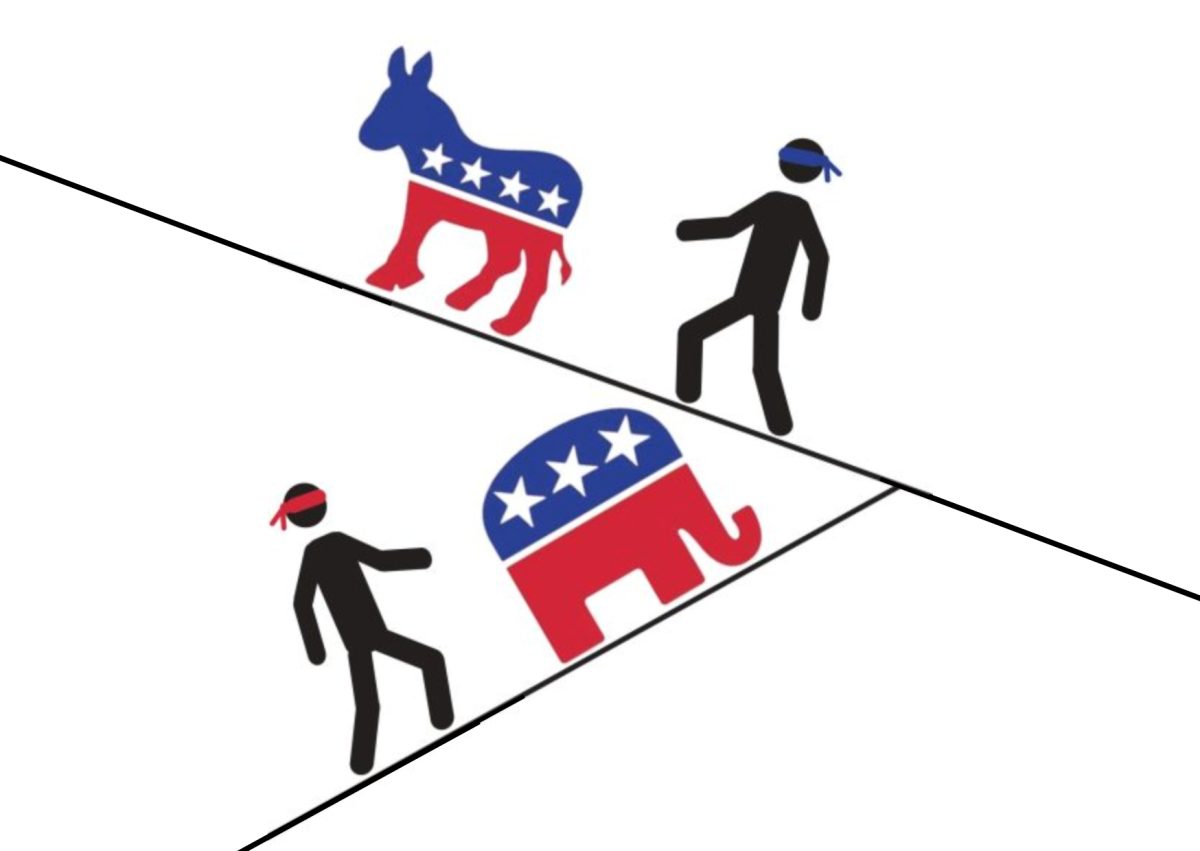In today’s political climate, it seems that there is a continuous growth of division. Many refrain from starting political conversations with friends, classmates, and family members, afraid of starting a heated argument.
The question is: why does it get so bitter? Elections did not always use to be this hostile between parties. People who voted used to discuss policies in a cordial way with each other or not at all.
Now, society has developed extreme party loyalty and it has further polarized the parties and led to decreased accountability of candidates.
There are many reasons one chooses to side with a political party. One of the main reasons is that a person aligns with most of the policies that the party supports, which was the point of political parties to begin with. However, the dangers of political parties come when members of political parties cannot admit the faults of their own party.
Once in a while, a political party will pass a law that was not successful or executed as intended, and when that happens, the party is supposed to admit that the politician has a flaw. However, what usually occurs is the exact opposite.
When the opposing party calls the party out that had the unsuccessful law, the failing party will refuse to admit that it was unsuccessful, afraid of admitting defeat to the other party. It should be healthy to critique your own party in weaker areas as a means to improve, and it should not be seen as a weakness.
Instead of weighing candidates on their qualifications or policy positions, voters are driven by the goal of supporting their side and winning. This fosters an “us” vs. “them” dynamic which creates toxicity and portrays the other side as “the enemy,” when in reality the so-called “enemy” is made up of neighbors and fellow members of the community.
Many try to demonize the enemy by giving nicknames and making up things that are strictly not true. Many Trump supporters call the people who will vote for Harris “Kamunists”, implying that her supporters are communists, which is not supported by any of her policies or anything she has ever stated.
Meanwhile democrats sometimes call Trump supporters “Trumpanzees” implying that they are animal-like, low class, and mindless. These nicknames are insulting to supporters of both parties and represent the “savagery” of US political parties trying to belittle each other.
The polarization of political parties is furthered by these cruel nicknames, and degrading the political stage both physically and morally. I see disrespect between parties as insecurities from the people wanting to feel a part of something, scared of not winning and therefore degrading the other party in fear of that loss.
One of the most damaging effects of excessive loyalty to political parties is the loss of accountability from the candidate. Political figures who are confident in their unwavering support from their party are likely to make irrational decisions without fear of repercussions.
During the 1972 presidential election, despite Nixon’s Watergate scandal, Republicans continued to support him and downplayed the significance of this major wrongdoing. Nixon won for re-election and his voters prioritized party loyalty and his policies, which contributed to a lack of immediate accountability of his actions.
Many choose to align themselves with a political party to feel a sense of belonging, and surround themselves by similar like-minded individuals. Being a part of the “team” or party makes one feel that they are contributing in a positive manner to our society.
This political party affiliation becomes a core sense of one’s identity, which leads to heightened emotions when it comes to politics. This is why many get arguments over policies and parties get heated because many take it as a personal attack when someone critiques their party, because it is as if someone is critiquing their identity.
Further, even if one does not fully agree with a politician’s stance on something, oftentimes they will be hesitant to discuss it with others in fear of not being seen as loyal or a part of the “team.”
Lastly, blind party loyalty has cult-like behavior. The definition of a cult is “intense devotion to a figure or object,” something that aptly describes how political parties act nowadays: intensely devoted to their candidate. Both parties feel the need to agree with everything their candidate says and defend anything someone from the other party criticizes fostering a cult-like atmosphere.
It is not healthy to put politicians on a pedestal and say that “my party’s candidate has no flaws”. No politician is perfect, in fact, many make several mistakes over the course of their career. We shouldnt be afraid to point that out, otherwise the excessive praise of them will lead to less accountability and further polarization.





